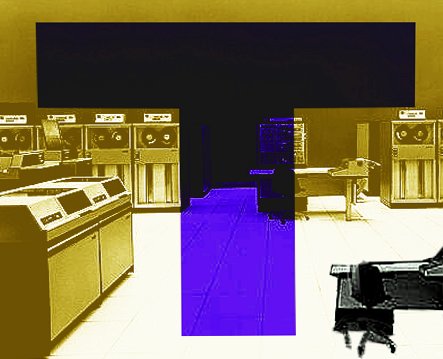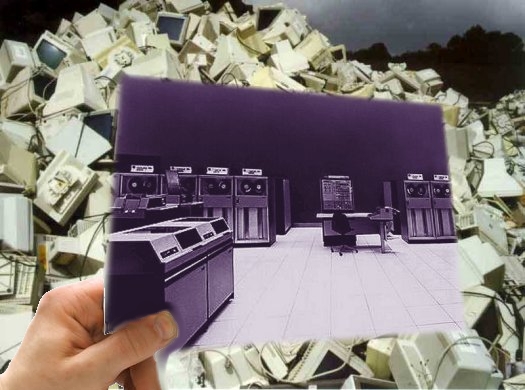Abstract
What follows is an effort to describe my experiences in the information technology industry. Between the years 1990 and 2002, I worked as a systems administrator at a number of major New York firms.
For the purposes of this paper I have tried to create a curriculum framework that would allow someone to see all the aspects of my work in, and knowledge of, computer operations: operating systems, software systems, servers, software systems development, and administration.
In addition to my own description of what I did in these areas, I have also collected and linked to various web sources. In this way, my hope was to provide a good view of the entire industry in a syllabus framework that can hopefully be used in middle school and high school curriculai.
Technology and Me
I had taken computer programming courses through the 1980s at SUNY New Paltz,
and understood that computers would be increasingly important, but it wasn't
until the very late 80s that I contemplated a world wide network of computers
and computer communication bringing people together in wholly new way.� In
1989 I learned about the Unix operating system and began to read books about
administration.� Only two weeks of study qualified me to be a Unix systems
manager; the demand was great back then, and expertise rare.
My first technology job happened to be with an early Internet company, and it
was only then that I learned about the Internet.� Oddly neither my
education at SUNY New Paltz, nor my reading in the NY Public Library gave me any
hint of the existence of the Internet, which had already been widely
established.
The growth of information through the 1990s was exciting, and it was the domain
of the technologist, not the corporate manager nearly until the year 2000.�
Meetings were held in cubicles, and rarely in board-type meeting rooms.�
Those meetings tended to be negotiations.� Management took control again in
the very late 1990s, and the world experienced a stock swindle bubble followed
by a crash whose losses went far beyond any previous experience, and created a
world recession that bordered on depression.� The new century was prepared
by the most extensive contribution to knowledge and technology in human history,
but started with history's most extreme example of financial maleficence.�
Technology changed in that there would be no more significant innovation; the
marketing of technology by a few very large corporate winners accompanied by
refinements and improvements, but no innovation.
My first job in technology with one of the early Internet companies was
appropriate because I found that my job title of manager, a term that evolved
into administrator, put me in the center of innovation integration.�
Because Internet innovation occurred during that period across a small number of
different systems, and because the growth of the industry demanded a flexibility
by managers to allow technologists to form their own careers, it was possible
for me to position myself as a consulting contractor in such a way that I could
experience all the major innovative advances very personally.
As I said, through the process of capitalization that resulted in extreme
recession, corporate management managed to wrest back control from the
technologists.� Through the recession the industry was converted from a
Democratic Technic to an Authoritarian Technic, to borrow terminology from Lewis
Mumford's Technics and Civilization.� To cement the process, the industry
was removed from its headquarters in New York and California, and other growing
technology neighborhoods in the US and Europe, to Bhopal, India.� All these
changes from retrospect seem not to be economic phenomena, as financial analysts
always say, but a tactic by consortia of high-level capital controllers to
rapidly increase the power of global corporations.� Especially telling is
that the process of shipping technology development centers to poorly-developed
nations was not as profitable as first claimed by many factors; the process may
have required government cooperation in the form of tax-relief subsidies.
Interesting terminology coming from Southern California describes the roots of
the Internet.� The terms "massaging" and "tweaking" were usually used to
describe software modifications; these terms are from the "So Cal" performance
car modification industry; "massaging" refers to grinding piston parts to make the flow of the gases and explosions more smooth, and "tweaking" usually means modifying electrical ignition systems to create better and more syncronized spark.� The birth
of the Internet was we know it occurred in Berkeley, California at the large
university during the social upheaval of the late 1960s; it was contemporary to
Berkeley's "Free Speech Movement." or FSM.

